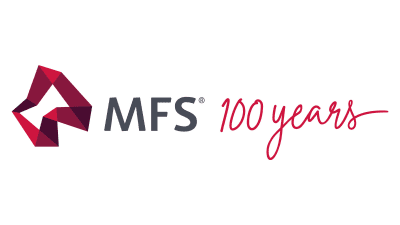Tax time in a pandemic



While there is a lack of new financial related legislation this year, the COVID-19 pandemic means financial advisers will need to take a different approach with their clients’ regular tax strategies.
With two months away from the new financial year, advisers and clients need to make sure they are giving themselves enough time to take appropriate action.
BT head of financial literacy and advocacy, Bryan Ashenden, said this year people were more focused on what had happened to their investments, what their income looked like, and whether they had a job or not, as market volatility had caused investments to plummet.
However, Ashenden said while tax had disappeared for a lot of people and was back of mind, people could not forget everything they normally looked at just because the environment was different. Advisers, he said, had the opportunity to make contact with clients and make sure they are doing everything sensible and not overreacting.
The virus has turned the world on its head and working from home has become the new norm for many industries. This is the only change since last financial year and advisers will need to include running costs deductions when speaking to clients who are now working from home.
While the Australian Taxation Office (ATO) simplified the deduction methodology for running costs for those working from home due to the pandemic, Ashenden warned that it was easy to make mistakes.
WORKING FROM HOME EXPENSES
Ashenden warned that running costs could be simply be calculated by the fact that people worked 40 hours, for example, over 10 weeks and that equalled 400 hours. However, this did not include leave or long weekends.
Authorised representative of the Doctors Financial Services, Julie Berry, told Money Management that employees needed to keep a log for work- related expenses to make sure claims would be valid.
“Perhaps there are some work-related expenses that can be claimed, particularly at this time when people are working from home. This creates some opportunity for claiming home office expenses for example, but these need to be valid claims and be able to be substantiated,” Berry said.
“Make sure your clients keep records where possible so they can demonstrate that these claims are factual.
“There are of course the usual work-related expense claims and again it is important to be able to substantiate these. Where possible, keeping records such as receipts and logbooks is the best way to record these expenses during the year.”
She noted there might be deductions that clients could claim for financial advice and these too would require evidence.
SUPERANNUATION
The other deductions, Berry said, needed be examined were additional concessional superannuation contributions.
“These contributions are tax deductible, but can only be made up to a maximum of $25,000 in each financial year and this includes any employer contributions they receive. Unused concessional caps from previous years can increase this limit, where the total superannuation balance is less than $500,000 on 30 June, 2019,” she said.
“You can also consider a spouse contribution which would entitle your client to an 18% tax offset on superannuation contributions up to $3,000 made on behalf of a non-working or low income earning partner. Your partner must earn less than $40,000 per annum to be eligible.”
Berry noted there was also an opportunity to make after-tax contributions (non-concessional) to super as well to give clients access to the co-contribution of up to $500.
“You can maximise these non-concessional contributions using the bring forward rules where available. This enables clients to contribute more to superannuation where their funds can work towards their retirement in a tax effective environment,” she said.
HLB Mann Judd partner, tax consulting, Peter Bembrick said despite current volatility, super was a long-term investment and was still an important tax-effective investment vehicle. This was especially important if clients had the means to build their super in the current environment.
“People should be trying to maximise their super depending on their age and their financial situation such as what investments they have and if they are paying off mortgages,” he said.
“If those in their late 40s into 50s have their mortgage under control, getting their super built up is important thing to do. The current situation doesn’t really change that.
“The $25,000 concessional contribution cap isn’t very high so if people have reasonable income they should try to get the full deductible contribution of $25,000.”
Ashenden said advisers needed to be particularly focused on clients about to turn 65 or had turned 65, given the work test proposals were set to take effect on 1 July. However, with Parliament not sitting until August due to the COVID-19 pandemic, it was unlikely the proposals would be passed through by then.
Last year, the Government announced that:
- People aged 65 and 66 will be able to make voluntary contributions without meeting the work test;
- People aged 65 and 66 will be able to make up to three years of non-concessional contributions under the bring-forward rule; and
- People aged below 75 will be able to receive contributions from their spouses.
“For advisers that had their clients to wait and see what happens with the legislation would now have to assume the legislation won’t occur and therefore find out what can they do instead to maximise the opportunities,” he said.
However, for those that were making over contributions in anticipation of the proposals the ATO would issue a contribution notice and the contribution would need to be taken out.
“If there are potential penalties enclosed on this – normally on a tax on deemed earnings within the fund – clients might be able to approach ATO to get those penalties reduced to the extent of waiving it because of the environment,” he said.
“They thought the change was going to happen and were preparing for the change. Senator Jane Hume even mentioned at the SMSF conference that they were keen to put through the legislation and it looked absolutely like it was going to happen and everything else had changed due to COVID-19 but, of course, they would be relying on ATO discretion.”
On clients looking to access their super early due to financial hardship stemming from the pandemic, Ashenden said people would need to apply to the ATO this financial year and would not be able to apply in July for the previous financial year.
“If they need it for next financial year it needs to be done first three months of next financial year – July, August or September. But it is important to educate clients and ask ‘do we need to access that $10,000?’ because it is taking money out of the super tax environment,” he said.
RETIREMENT
For those in retirement, Berry said advisers could look at the timing of selling assets.
“Have there been asset sales that have caused a capital gain? What, if any, tax might be payable on this? Should you look at capitalising a loss to help offset this gain,” she said.
“You may have seen clients sell out of assets at a loss as they switched to cash as the sharemarket fell, can these losses be used to reduce their taxable income? Again, specialist tax advice from a registered tax agent can help your clients minimise their liability.”
CAPITAL GAINS
On tax advice, Bembrick noted advisers needed to be aware of capital gains or losses, depending on how long clients had been sitting on investments for and to help give them a picture of their overall financial position.
“Advisers might not have all that information depending on how long they’ve been dealing with the client and this links back to tax advisers knowing the situation,” Bembrick said.
“If they have carry forward capital losses then that information is in the individual’s tax return. If the financial adviser doesn’t have that then they need to talk to their client to find out if there are any capital gains they can move around the portfolio, or capital losses.
“It is also important to make sure they don’t pay too much on gains and while obvious, advisers need to be conscious of discounts on capital gains and timing with clients are looking to sell assets.”
PREPAYING INTEREST
Both Bembrick and Ashenden said advisers also needed to look at prepaying interest on investment loans if clients could afford to.
“Financial institutions and lenders are giving people that ‘repayment holiday’ where you don’t need to pay anything for a particular amount of time. Some say prepay interest is going against what a lot of things have been talked about but obviously interest rates now are the lowest we’ve seen or will ever see them so prepaying might be worth it,” Ashenden said.
“But you need to find the right balance and if could be that tax-wise prepaying interest makes sense but cashflow-wise it doesn’t. Advisers will need to work out the right balance between the two.”
Recommended for you
Private wealth firm Escala Partners is seeking to become a leading player in the Australian advice landscape, helped by backing from US player Focus Financial.
In this new series in partnership with MFS Investment Management, delve into all things fixed income and discover how you can use the asset class to build better client portfolios. In this Q&A discussion, MFS managing director- head of wholesale distribution James Langlands sits down with Evidentia senior asset consultant Ron Mehmet to discuss fund selection.
ETF providers are considering the phase-out of bank hybrids in their product development plans with billions of fixed-income assets set to seek a new home in the coming years.
Bell Financial Group co-CEO Arnie Selvarajah believes regulation will make the provision of episodic advice easier for consumers and is pivoting the business over the next two years to focus on wealth management.










